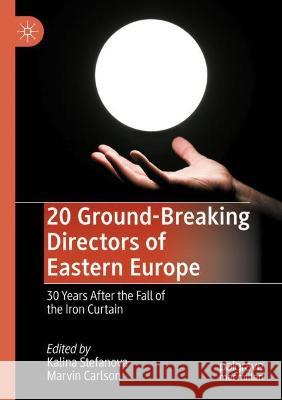20 Ground-Breaking Directors of Eastern Europe: 30 Years After the Fall of the Iron Curtain » książka
topmenu
20 Ground-Breaking Directors of Eastern Europe: 30 Years After the Fall of the Iron Curtain
ISBN-13: 9783030529376 / Angielski / Miękka / 2022
Directors have long been the main figures on Eastern European stages. During the last three decades some of the most outstanding among them have risen to international stardom thanks to their ground-breaking productions that speak to audiences far beyond local borders. Not by chance, a considerable number of these directors have won the second-biggest theatre award on the continent – the European Prize for (New) Theatrical Realities. It would not be an exaggeration to say that the top directors of the region have been pushing contemporary theatre as a whole ahead into new territories. This book offers informative and in-depth portraits of twenty of these directors, written by leading critics, scholars, and researchers, who shed light on the directors’ signature styles with examples of their emblematic productions and outline the reasons for their impact. In addition, in two chapters the selected directors themselves discuss their artistic family trees as well as the main stakes theatre faces today. The book will be of interest to theatre scholars, students, and anybody engaged with theatre on a global scale.











